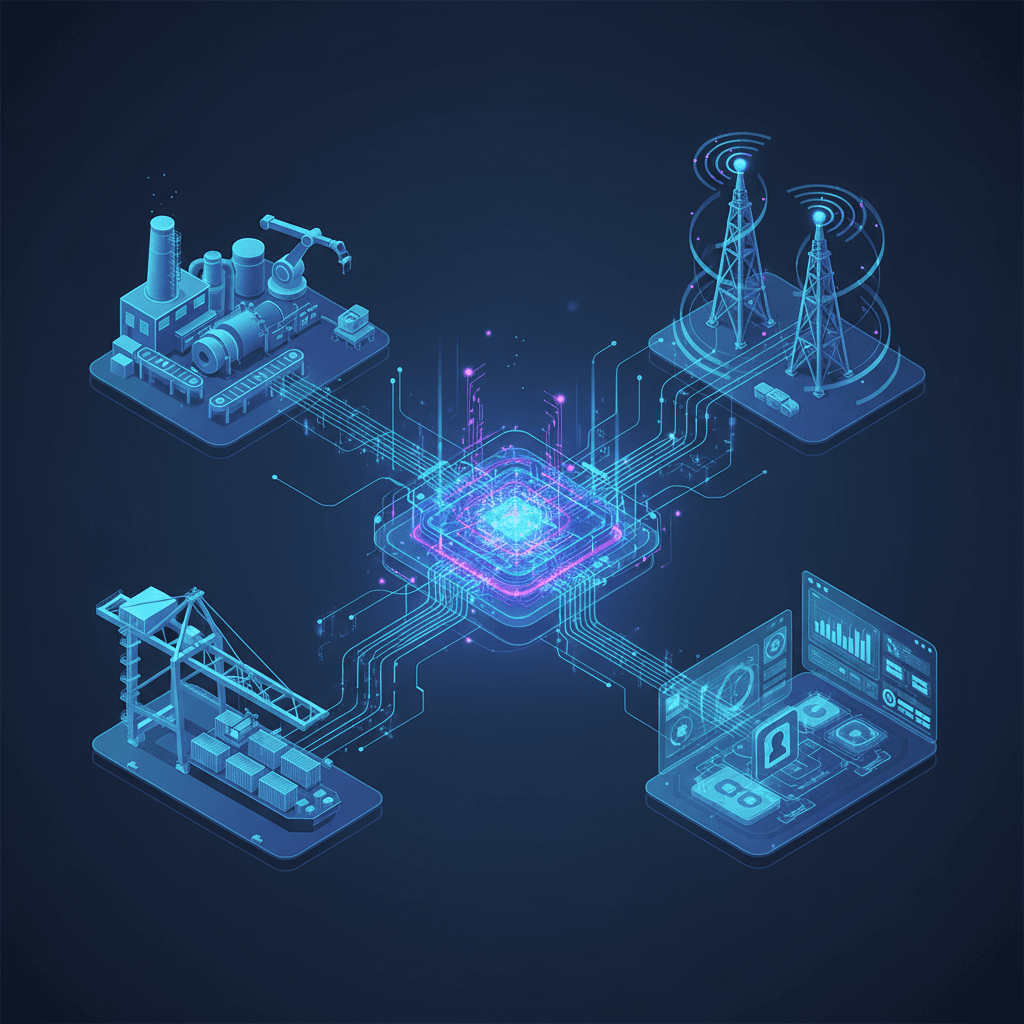Huawei Grants Industrial Systems Independent Decision-Making Power with Agentic AI
These systems autonomously learn, optimize, and execute across industries, from heavy manufacturing to finance, redefining operations.
October 14, 2025

## Huawei Forges Ahead with Agentic AI, Granting Independent Decision-Making Power to Industrial Systems
In a significant leap beyond conventional artificial intelligence, Huawei is pioneering the development and deployment of agentic AI systems capable of independent planning, decision-making, and execution in complex industrial environments. These systems, which move past simple command-response interactions, are already demonstrating tangible results in sectors ranging from heavy industry and logistics to finance and telecommunications, signaling a fundamental shift in enterprise operations and computing architecture.
A compelling illustration of this technological advancement is underway at a cement plant operated by the Conch Group. Here, an agentic AI system, built upon Huawei's infrastructure, is now predicting the strength of clinker—a key component in cement—with over 90% accuracy.[1] More impressively, the system autonomously adjusts calcination parameters to reduce coal consumption by 1%, a decision-making process that previously relied on human expertise cultivated over decades.[1] This AI model, co-developed by Conch Group and Huawei, leverages the Pangu prediction, computer vision, and natural language processing models to create a comprehensive AI operating system.[2][3] The system integrates central training, edge inference, and continuous learning to not only optimize fuel consumption but also to monitor and manage equipment and enhance worker safety.[2][3]
Huawei's ambitions in agentic AI are underpinned by a comprehensive strategy that encompasses AI infrastructure, foundational models, specialized tools, and agent platforms. At the core of this strategy are the Pangu models, a series of large-scale AI models designed for a wide array of industry-specific applications.[4][5] These models are structured in a three-layer architecture: a foundational L0 layer, an L1 layer for industry-specific models, and an L2 layer for scenario-specific applications.[6] This tiered approach allows for rapid adaptation to diverse tasks and enables customers to train the models on their own datasets, fostering a high degree of generalizability across various industries.[4][6] The entire ecosystem is supported by Huawei's full-stack AI portfolio, which includes the Ascend series of AI chips and the open-source MindSpore deep learning framework, designed for efficient execution across cloud, edge, and device scenarios.
The application of Huawei's agentic AI extends far beyond the cement industry. In the realm of corporate travel, Shenzhen Smartcom has utilized the Huawei Cloud Versatile platform to develop an intelligent travel agent. This system analyzes travel industry data, corporate policies, and individual travel histories to generate personalized recommendations. Employees adopt more than half of these suggestions, completing bookings in under two minutes, and the agent resolves 80% of issues with an average of just three interactions.[1] In the telecommunications sector, Huawei is embedding agentic AI into its 5.5G networks to create autonomous systems capable of self-optimization and self-maintenance, dynamically adapting to real-time service needs.[7][8] This is achieved through "agentic workflows" that translate service demands into network intent and automate resource scheduling.[9][4][7]
Furthermore, Huawei is making significant inroads in the logistics and financial sectors. At the Port of Tianjin, one of the world's largest, a collaboration between the port, Huawei, and China Mobile has led to a "smart port" that leverages 5G, cloud-controlled autonomous vehicles, and artificial intelligence.[10][11][12] The Port Operation AI Agent uses large models to analyze complex scenarios and optimize decision-making for intelligent production and security.[13][14] In finance, Huawei has introduced the "FinAgent Booster" (FAB), a platform designed to help financial institutions deploy AI in core scenarios.[15][14] FAB offers scenario-based workflows and modular components that enable banks to build and implement their own AI agents, with capabilities such as 90% accuracy in intent recognition and millisecond-level response times for customer-facing services.[15][16] The company's vision for the financial industry is one where every bank has its own AI agent, reshaping how risk management decisions are made and how services are delivered.[17]
The implications of Huawei's advancements in agentic AI are profound for the broader technology industry. By moving from reactive, human-prompted AI to proactive, autonomous systems, Huawei is not only enhancing efficiency and reducing operational costs for its clients but is also redefining the relationship between humans and machines in the workplace. The success of these systems, however, hinges on significant investments in infrastructure, sophisticated data engineering, and seamless integration with existing business processes.[1] As these agentic AI systems mature, the focus is shifting from demonstrating technological capabilities to addressing the challenges of operational integration, establishing robust governance frameworks, and delivering measurable business outcomes. Huawei's early successes in diverse industries suggest that the practical value of agentic AI emerges when these systems are tailored to solve specific operational challenges, rather than being implemented as general-purpose automation tools.
Sources
[1]
[6]
[8]
[9]
[11]
[12]
[13]
[14]
[15]
[16]
[17]